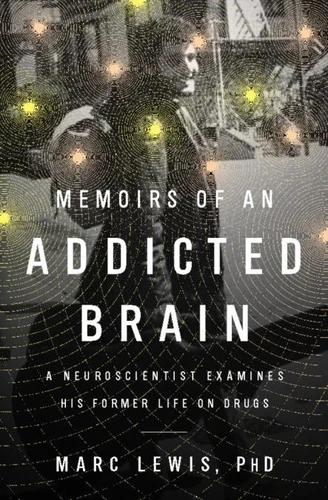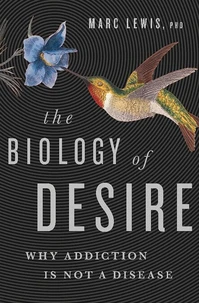Memoirs of an Addicted Brain. A Neuroscientist Examines his Former Life on Drugs
Par :Formats :
Disponible dans votre compte client Decitre ou Furet du Nord dès validation de votre commande. Le format ePub protégé est :
- Compatible avec une lecture sur My Vivlio (smartphone, tablette, ordinateur)
- Compatible avec une lecture sur liseuses Vivlio
- Pour les liseuses autres que Vivlio, vous devez utiliser le logiciel Adobe Digital Edition. Non compatible avec la lecture sur les liseuses Kindle, Remarkable et Sony
- Non compatible avec un achat hors France métropolitaine
 , qui est-ce ?
, qui est-ce ?Notre partenaire de plateforme de lecture numérique où vous retrouverez l'ensemble de vos ebooks gratuitement
Pour en savoir plus sur nos ebooks, consultez notre aide en ligne ici
- Nombre de pages336
- FormatePub
- ISBN978-1-61039-148-1
- EAN9781610391481
- Date de parution05/03/2012
- Protection num.Adobe DRM
- Infos supplémentairesepub
- ÉditeurPublicAffairs
Résumé
Marc Lewis's relationship with drugs began in a New England boarding school where, as a bullied and homesick fifteen-year-old, he made brief escapes from reality by way of cough medicine, alcohol, and marijuana. In Berkeley, California, in its hippie heyday, he found methamphetamine and LSD and heroin. He sniffed nitrous oxide in Malaysia and frequented Calcutta's opium dens. Ultimately, though, his journey took him where it takes most addicts: into a life of addiction, desperation, deception, and crime.
But unlike most addicts, Lewis recovered and became a developmental psychologist and researcher in neuroscience. In Memoirs of an Addicted Brain, he applies his professional expertise to a study of his former self, using the story of his own journey through addiction to tell the universal story of addictions of every kind. He explains the neurological effects of a variety of powerful drugs, and shows how they speak to the brain -- itself designed to seek rewards and soothe pain -- in its own language.
And he illuminates how craving overtakes the nervous system, sculpting a synaptic network dedicated to one goal -- more -- at the expense of everything else.
But unlike most addicts, Lewis recovered and became a developmental psychologist and researcher in neuroscience. In Memoirs of an Addicted Brain, he applies his professional expertise to a study of his former self, using the story of his own journey through addiction to tell the universal story of addictions of every kind. He explains the neurological effects of a variety of powerful drugs, and shows how they speak to the brain -- itself designed to seek rewards and soothe pain -- in its own language.
And he illuminates how craving overtakes the nervous system, sculpting a synaptic network dedicated to one goal -- more -- at the expense of everything else.
Marc Lewis's relationship with drugs began in a New England boarding school where, as a bullied and homesick fifteen-year-old, he made brief escapes from reality by way of cough medicine, alcohol, and marijuana. In Berkeley, California, in its hippie heyday, he found methamphetamine and LSD and heroin. He sniffed nitrous oxide in Malaysia and frequented Calcutta's opium dens. Ultimately, though, his journey took him where it takes most addicts: into a life of addiction, desperation, deception, and crime.
But unlike most addicts, Lewis recovered and became a developmental psychologist and researcher in neuroscience. In Memoirs of an Addicted Brain, he applies his professional expertise to a study of his former self, using the story of his own journey through addiction to tell the universal story of addictions of every kind. He explains the neurological effects of a variety of powerful drugs, and shows how they speak to the brain -- itself designed to seek rewards and soothe pain -- in its own language.
And he illuminates how craving overtakes the nervous system, sculpting a synaptic network dedicated to one goal -- more -- at the expense of everything else.
But unlike most addicts, Lewis recovered and became a developmental psychologist and researcher in neuroscience. In Memoirs of an Addicted Brain, he applies his professional expertise to a study of his former self, using the story of his own journey through addiction to tell the universal story of addictions of every kind. He explains the neurological effects of a variety of powerful drugs, and shows how they speak to the brain -- itself designed to seek rewards and soothe pain -- in its own language.
And he illuminates how craving overtakes the nervous system, sculpting a synaptic network dedicated to one goal -- more -- at the expense of everything else.





